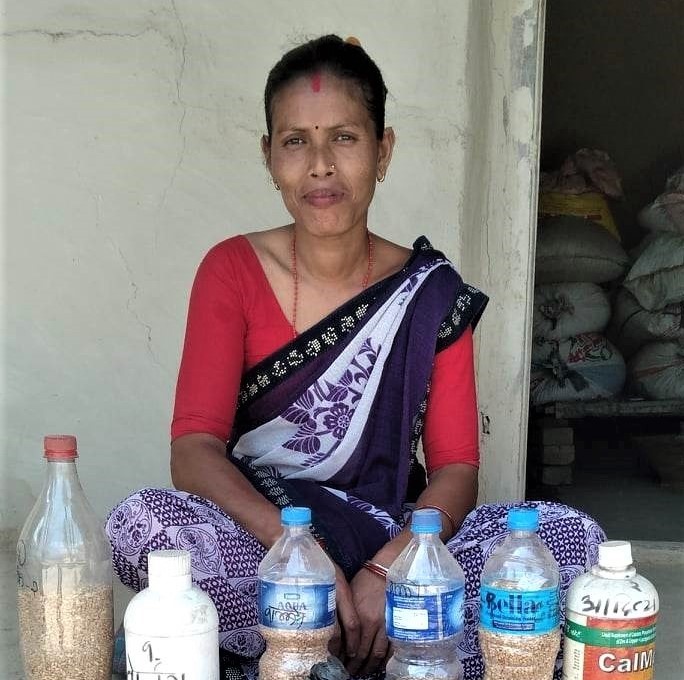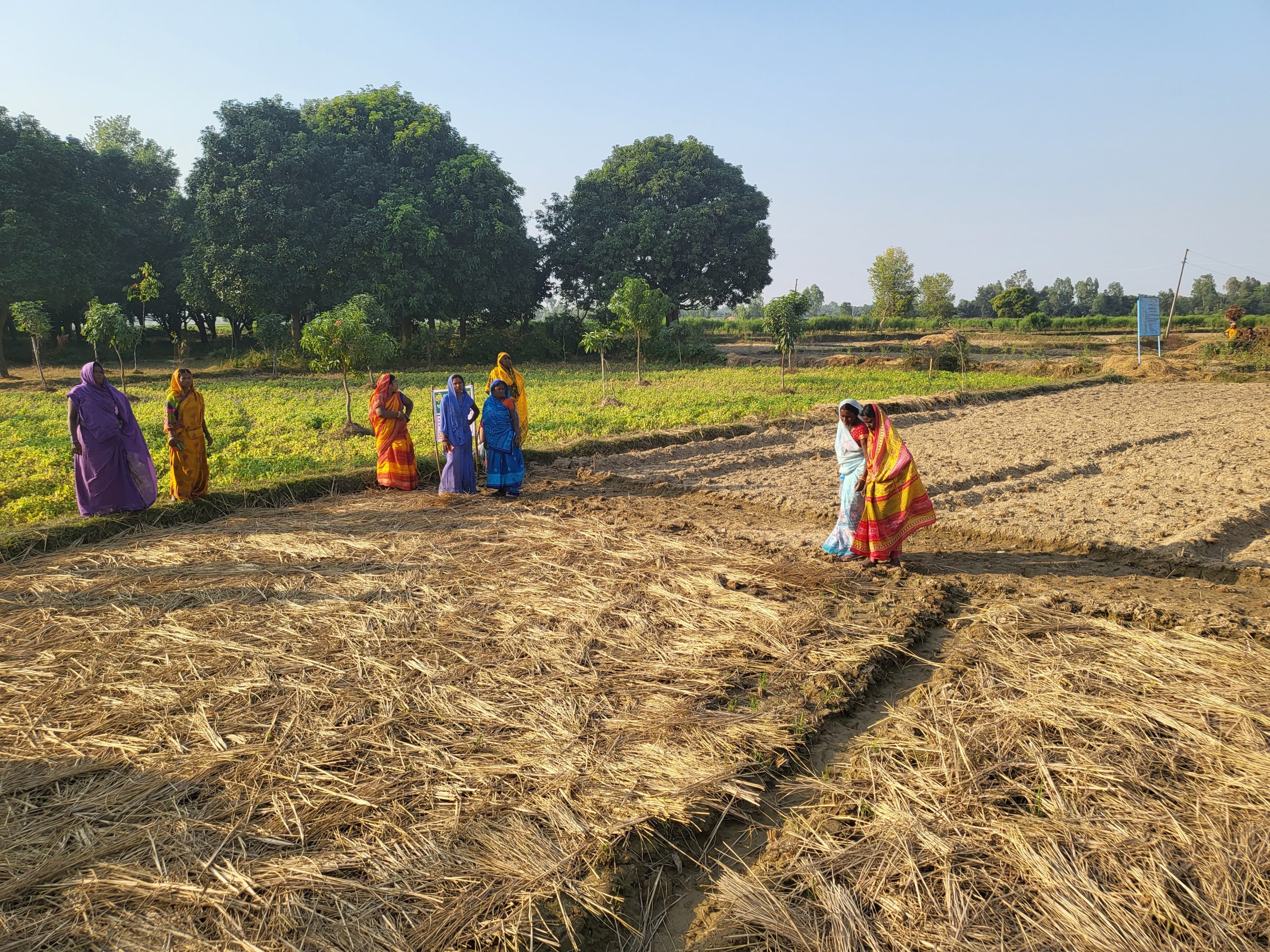In the serene village of Prasbani, nestled within the Agnisair Krishnasavaran Rural Municipality, Saptari District, resides a remarkable woman named Shivani Kumari Chaudhary. At the age of 40, she gracefully balances her household responsibilities, a loving family consisting of her husband, two sons, and her mother-in-law. Every morning, Shivani rises at the break of dawn to embark on her daily routine. Her day commences with meticulously cleaning the front yard, kitchen, and the animal shed. Tending to her goats, she feeds them fresh grass and then prepares tea and breakfast for her family.
After sending her sons off to school, Shivani's day takes on a new dimension. She heads out to gather fodder for her goats, following which, she ventures to the local school where she serves as the chairman of the school management committee, a role she cherishes deeply. In addition, she actively participates in various programs and meetings organized by the National Farmers Group Federation (NFGF) and local cooperatives, demonstrating her commitment to community development.
Shivani's journey towards empowerment and success was not always this smooth. She says, "Prior to my involvement in the local cooperative group, my life was marred by challenges and turmoil. My husband's drinking habit had cast a dark shadow over her household, resulting in frequent chaos that detrimentally affected their children's well-being and education. Balancing the demands of daily household chores and the role as a mother and wife became an arduous struggle." To make ends meet, she had to resort to rearing goats and worked as a daily wage laborer. This life left her deeply dissatisfied and yearning for change.
The turning point in her life came when she became actively involved in the Tharu Mahila Bachaht Krishak Samuha group's monthly meetings. She worked tirelessly to improve her circumstances, and her determination bore fruit as she saw the number of goats increase from two to five. She also took on additional work in rented fields, sharing the yield with the landowners, which allowed her to increase her income.

Recognized for her dedication and hard work, Shivani was chosen as a volunteer farmer for the Farmer Field Business School (FFBS) project, where training improved her savings and record-keeping skills. "I have gained invaluable knowledge about climate change and adopted climate-smart agricultural practices, such as zero tillage wheat farming and cultivating new varieties of wheat, mung, and rice, as well as using Leaf Color Charts to monitor crop health. The training has boosted my confidence, enabling me to actively participate in various programs and training sessions," says Shivani.
Shivani's life, once fraught with misery, gradually transformed through her participation in the group. Her in-laws and her husband are now content and value her opinions, and she even assists the local facilitator in conducting Community Vulnerability and Capacity Assessment (CVCA) sessions. Her recent appointment as the treasurer of the NFGF municipality committee has added new responsibilities, but she approaches them with confidence and determination.
“Poor and marginalized people from the municipality are suffering from malnutrition. The initiative taken by CARE Nepal and NFGF has proven vital to improve their nutritional habits and their livelihood. The 316 families are now participating in nutrition behavior change session and have started to consume fresh and healthy leafy vegetables from the nutrition garden.” says Kalpana Chaudhary, Vice-Chairperson, Agnisair Krishnasavaran Rural Municipality
The FFBS project, implemented in 55 farmers' groups in the rural municipality, uses farmer volunteers like Shivani to connect agricultural extension services with farmers, with a remarkable 80% of these lead farmers now being women. The NFGF Palika Committee actively promotes women in leadership roles, providing them with valuable experience and growth opportunities. Collaboration between NFGF Nepal and the municipality office has expanded the project's impact. In FY 23/24, the Rural Municipality allocated NRs. 17,00,000 for the FFBS project and other NFGF Nepal and CARE Nepal initiatives, reaffirming their commitment to sustainable development and empowering individuals like Shivani.

